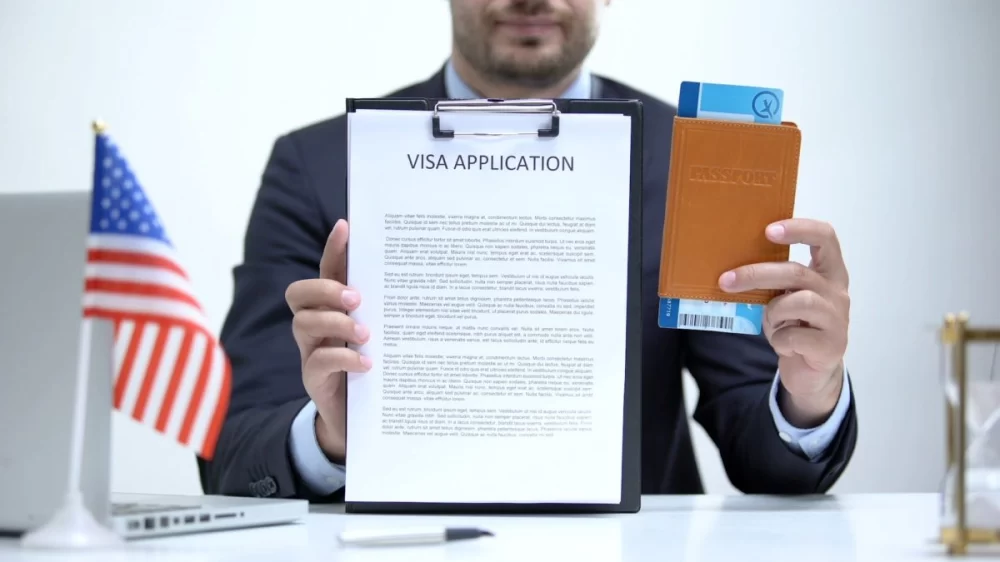
Understanding Consular Processing for Green Card Applicants
- definition-and-overview
- step-by-step-process
- who-should-use-consular-processing
- real-case-how-one-family-reunited
- common-challenges-and-how-to-avoid-them
- why-legal-guidance-matters
1. Definition and Overview
Consular processing is the pathway by which individuals living outside the United States apply for a U.S. green card through a U.S. embassy or consulate in their home country. Unlike adjustment of status — which happens inside the U.S. — this process allows foreign nationals to immigrate from abroad once their application is approved.
It’s a crucial piece of the immigration system and a common choice for people seeking permanent residency after sponsorship by a family member or employer. Many who ask “what is consular processing” are surprised to learn how structured and multilayered the system truly is.
2. Step-by-Step Process
2.1 Petition Approval (USCIS Stage)
The process begins with a petition — typically Form I-130 (family-based) or Form I-140 (employment-based) — filed by a U.S. citizen or lawful permanent resident. This petition is reviewed by USCIS.
2.2 National Visa Center (NVC) Case Management
Once USCIS approves the petition, it’s sent to the National Visa Center (NVC), which assigns a case number. This stage includes submitting financial documents, paying fees, and completing Form DS-260 — the immigrant visa application.
2.3 Interview Scheduling and Medical Exam
When the case is documentarily complete and a visa number is available, the consulate will schedule an interview. Applicants must undergo a medical examination by a panel physician before the appointment.
2.4 Immigrant Visa Interview
The interview takes place at the U.S. consulate in the applicant’s country. A consular officer will review the case, ask questions, and — if satisfied — approve the visa.
2.5 Entry and Green Card Issuance
Once the visa is issued, the applicant can travel to the U.S. Upon entry, they become a lawful permanent resident and receive their green card by mail.
3. Who Should Use Consular Processing
Consular processing is ideal for those who are currently living outside the U.S. or who are ineligible to adjust status inside the U.S. due to unlawful presence or other inadmissibility issues.
It’s also often faster than adjustment of status, depending on the embassy's schedule and country of origin. For instance, some countries have efficient visa processing while others experience significant backlogs.
4. Real Case: How One Family Reunited
Ana, a U.S. citizen, filed an I-130 for her husband Luis, who lived in Colombia. While it took almost 14 months to get an interview in Bogotá, the process through consular processing ensured that Luis entered the U.S. with full legal status. Now reunited in New Jersey, their journey highlights the value of patience and preparation.
Many applicants like Luis benefit from structured timelines and professional help, often turning to teams like ESPLawyers for step-by-step support.
5. Common Challenges and How to Avoid Them
5.1 Document Errors
A single mistake in financial documents or DS-260 entries can lead to delays or denials. Applicants should double-check all forms or use legal support.
5.2 Missing Interview Notices
Embassy emails can get lost in spam folders. Constant email monitoring and using the CEAC portal for updates is crucial.
5.3 Administrative Processing
Some cases may go into additional review — known as “221(g)” holds. While frustrating, this is often temporary and can be resolved with follow-up submissions.
6. Why Legal Guidance Matters
While consular processing is technically straightforward, it’s emotionally and legally complex. Minor errors can delay family reunification for months.
Working with a firm like ESPLawyers ensures every stage — from petition to port of entry — is handled with expertise and accuracy. Especially for those dealing with inadmissibility waivers or complicated histories, legal counsel can make the difference between success and heartbreak.
If you’re considering applying for a U.S. green card from abroad, understanding consular processing is only the first step. Turn knowledge into action with trusted professionals guiding you through the process.








